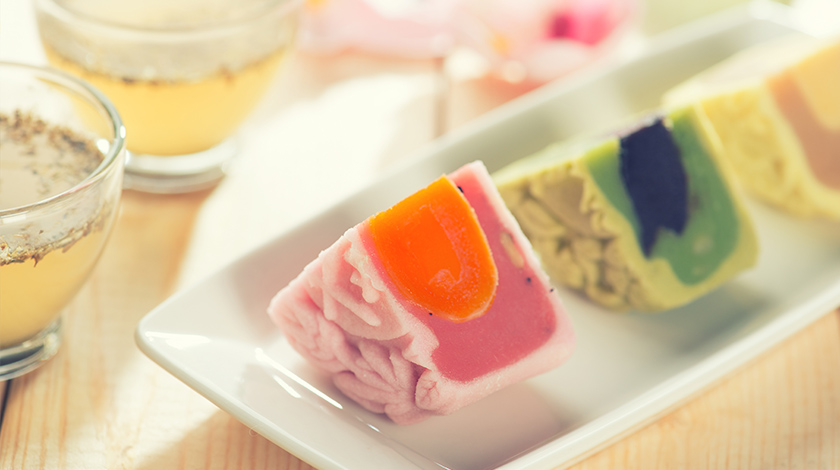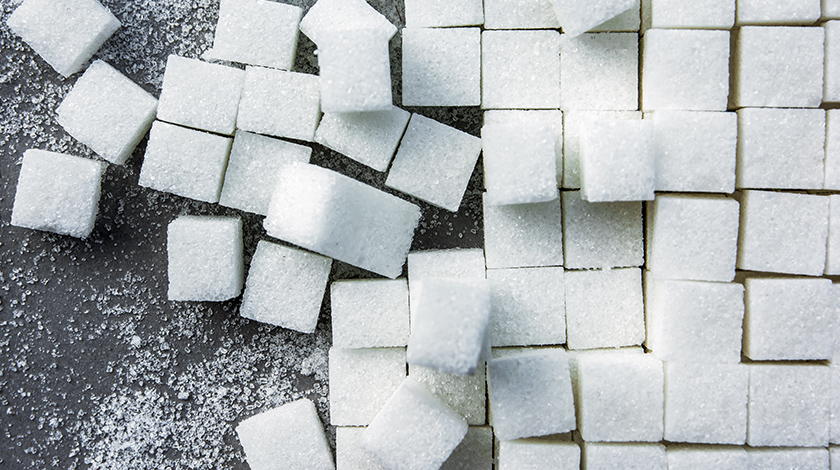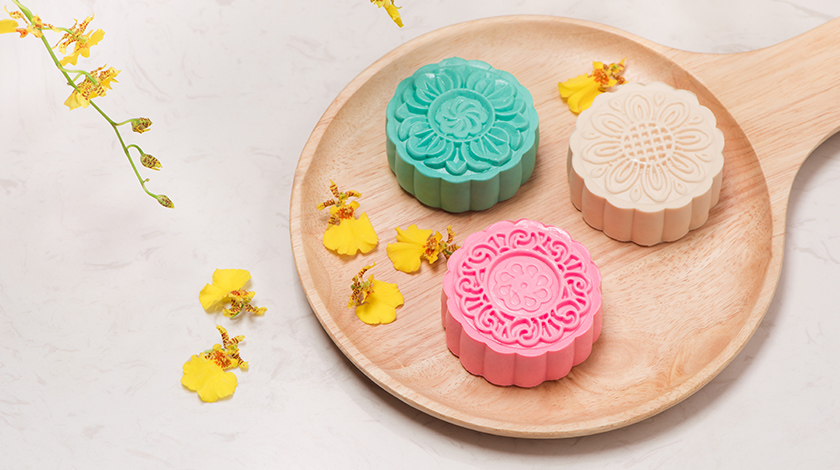In today’s food-obsessed society, mooncakes have arguably taken on an even higher profile than before when it comes to Mid-Autumn festivities. Come this time of the year, Facebook and Instagram are flooded with photographs of new mooncake designs and flavors. While mooncakes are an indispensable part of our Mid-Autumn traditions, they should be consumed only with great circumspection. Here is why.
Calories

Classic mooncakes can contain almost 800 calories1 — that’s about 25% of the total recommended daily calorie intake for men, and nearly 50% of the recommended daily intake for women.2 Many would think that new varieties such as “snow skin” mooncakes are a lighter choice. Well, this is not actually the case. Research has compared a “snow skin” and a traditional mooncake, both of 7cm diameter. It turns out the crusts alone contain 150 and 153 calories respectively.3 When the crusts don’t show much difference, it all boils down to the content of the mooncake.
Sugar and fat content

Weight gain is often the result of consuming too much sugar, fat, or carbohydrates — or all of the above. Unfortunately, this unholy trifecta of waistline-thickening ingredients is present in great abundance in your mooncakes.
Hong Kong’s Centre for Food Safety tested 100 grams of the classic lotus paste mooncake with double egg yolks and discovered it contained 30 grams of sugar and 22.3 grams of fat, and as many calories as 4 bowls of white rice.1 Think about how many hours on the treadmill you would need to burn that off! New mooncake varieties shun lotus paste and welcome the likes of red and green beans. Although they contain more dietary fiber, the amount of sugar that put into making them are still significant.
Due to the high sugar content in mooncakes, diabetics are encouraged to avoid them entirely. Consuming mooncakes without prior medical approval may exceptionally lead to potentially fatal spikes in blood sugar levels.
Cholesterol content
The classic double egg yolk, as well as the liberal use of saturated fat, contribute to the high levels of cholesterol in mooncakes. A single mooncake can contain up to 1,200 mg of cholesterol, which is 4 times the maximum daily recommended cholesterol intake. Little wonder that sufferers of heart disease have been warned to consult a doctor before consuming them.4
Moderating mooncake consumption
If you have no pre-existing medical conditions, there’s certainly no need to avoid mooncakes entirely during the festive season. Just follow these tips to keep your consumption within safe limits.
- Don’t eat the whole cake. If you must have some, why not cut yourself an eighth, or at most a quarter? And make sure you set sensible limits on your overall consumption (eating eight quarters a day is still unhealthy). You should aim to consume no more than half a mooncake a week.
- Go for sugar-free alternatives. Sugar-free mooncakes retain their flavor with natural sweeteners like isomalt or Stevia — which results in a lower sugar content and a healthier treat.
This Mid-Autumn Festival, commit to a healthier you by resisting the temptation to overindulge in everyone’s favorite Mid-Autumn snack!
References
- https://www.hongkongfp.com/2016/09/03/hong-kong-health-warning-festive-mooncakes/
- http://www.cfs.gov.hk/english/nutrient/nutrient.php
- http://www.healthguru.sg/learn-about-food/nutrition-info-pastry-mooncake-crust-vs-snowskin-crust-which-is-healthier/
- http://www.info.gov.hk/gia/general/200509/16/P200509160100.htm

